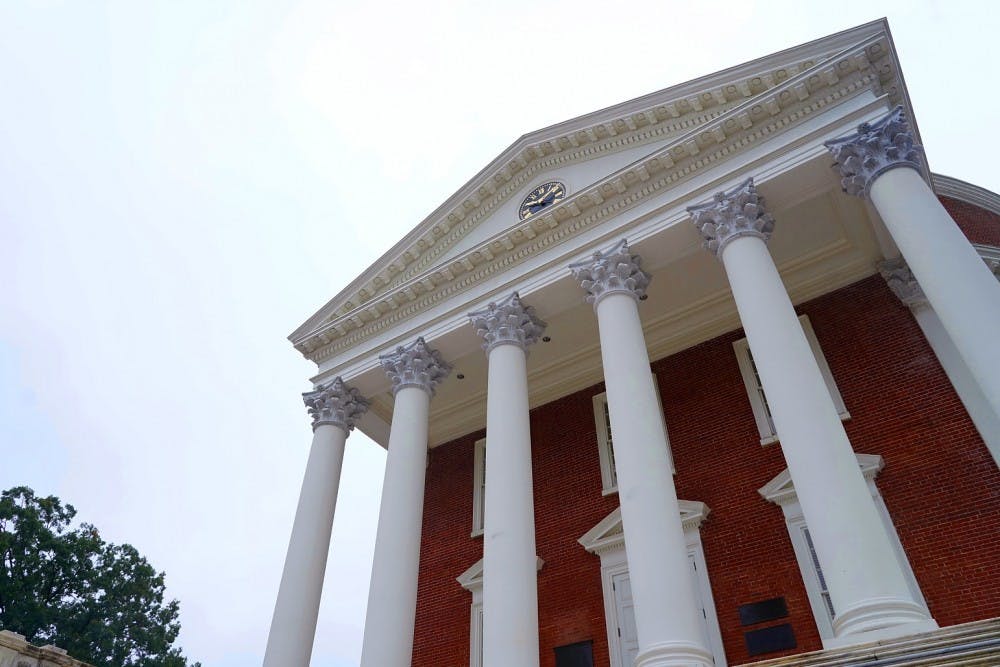Ahead of a hearing on an approximately three percent tuition hike at the Board of Visitors later this week, University President Jim Ryan told The Cavalier Daily Tuesday he supports increasing U.Va. tuition for third- and fourth-year students to offset costs, though he said he hopes this hike is “the last significant bump that you see.”
“No one likes to raise tuition, no one likes to have tuition raised,” Ryan said in an interview. “But the rationale for it is consistent with the rationale for differential tuition at Batten ... Architecture, Nursing, which is that those educational programs involve smaller classes and more intense educational experiences, which, frankly, are more expensive.”
Some students plan to hold a “silent protest” of the Board of Visitors’ Friday meeting against both the increase in tuition and the lack of a public comment period before the Board’s discussion, according to an email circulated by third-year College student Tanner Hirschfeld.
“The Board of Visitors refuses to listen to these student concerns prior to voting to raise tuition at board meetings by not permitting a public comment period,” the email reads.
U.Va. Vice President for Finance Melody Bianchetto told The Cavalier Daily she believes the University has allowed for student input through a public session with the Board’s Finance Committee chair, James Murray, in September. She added the University provided an email address for students to voice concerns about the tuition increases. Ryan agreed.
“I think it's an ongoing conversation about how we make budget priorities and how we fund those and how we pay for those things,” Bianchetto said when asked if the meeting and email inbox were adequate responses to Hirschfeld’s complaints. “It's a much further discussion than just reply to a single tuition increase. I think it's much more important that we have that conversation."
In a message to The Cavalier Daily, Hirschfeld said he would prefer an in-person public comment period where students could have up to three minutes to address the Board.
“However, I do not believe their solutions remedy the problem, nor suffice for a true public comment period in front of the entirety of the board,” Hirschfeld wrote. “There is no substitute for student voices when it comes to the debate over tuition and fees, as they are directly aggrieved by increases.”
Under the proposed plan, students in the College of Arts and Sciences would see an increase on their annual tuition bills between $342 and $410. Similar increases would apply for students in the Curry School of Education, School of Architecture and School of Continuing and Professional Studies. Students in the Nursing, Commerce, Batten and Engineering Schools would see similar tuition increases, but only for returning students.
The proposed tuition increase for next year will be the fourth-consecutive year that rate increases will remain at or below the rate of inflation for most in-state students.
These increases are similar to those that students have seen for the past several years. In 2016, tuition increased 1.48 percent; in 2017, it was 2.18 percent; and in 2018, it was 2.4 percent. Since 2012, tuition increases have hovered between 1.5 percent and 4.5 percent.
The Board is also considering a proposal to implement an upper-division tuition rate for all in-state and out-of-state third- and fourth-years in fall 2021. This new tuition bracket would increase annual rates by between 4.5 and 5 percent for third- and fourth-year students. With increased tuition revenue, the Board plans to expand and strengthen academic programs. Additional course offerings in high-demand areas, investment in faculty, curriculum innovation and greater research opportunities will be boosted through the new funding bracket.
At his inauguration, Ryan announced that families with incomes less than $80,000 per year would be given grants to cover tuition and fees, and students with family incomes below $30,000 per year would be given grants to cover tuition, fees, room and board.
“[It’s] really just a first step in taking a more holistic look at our financial aid,” Ryan told The Cavalier Daily. “We can’t forecast at this point exactly what we’re going to do, but one of my goals is to increase accessibility [and] increase affordability so I don’t think we’re finished.
While Ryan’s promise was new, the actual changes to the financial aid process are unclear.
Ryan said he thinks there will likely not be a vote on the proposed tuition increase for third- and fourth-year students at this week’s board meeting, but added that there may be one by the next series of meetings in March.
After this story was initially published, a representative of the University reached out to The Cavalier Daily to clarify Ryan expressed support for the tuition increases for third- and fourth-year students, and that he does expect a committee vote for the base tuition increases — but not a vote on the upper division tuition hikes.







